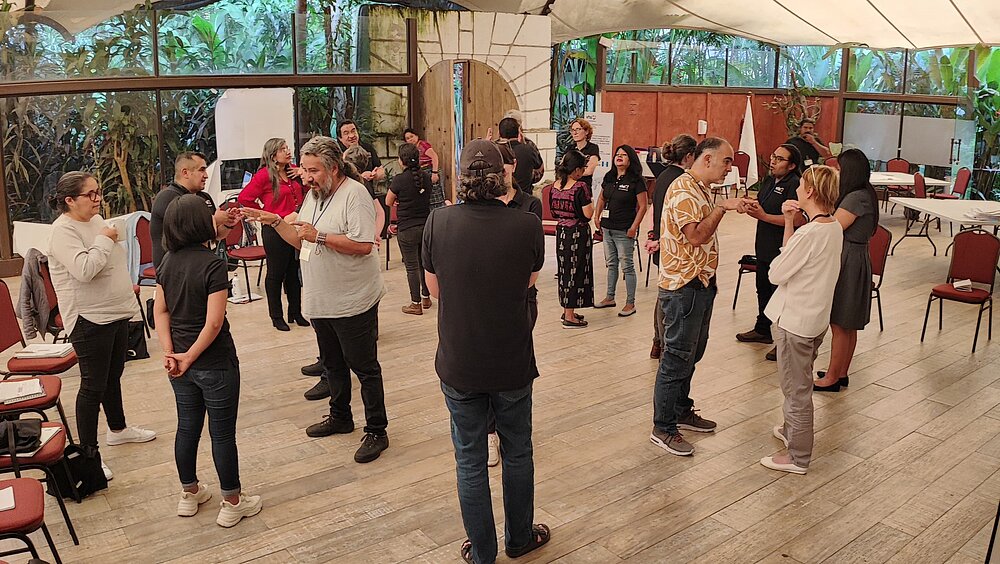“I was hired as a teacher for a youth and adult education centre. When I arrived at the community where I was supposed to work, I found that there was no facility to do so, there were no materials or supplies to conduct the work sessions, and there was no established group of participants.” What was just described is a common situation in the Guatemala-Mexico region. It can easily also describe the Latin American context, where those in charge of youth and adult programmes not only have the role of teachers but also must take on the role of community managers and administrators, seeking to promote education for the local population.
The Curriculum managerALE, which emerged as a training proposal from DVV International in Southeast Asia, is a valuable tool for strengthening teacher training and providing them with the management and administrative tools they need to establish and run training centres.
28 experts from five countries discussed how the curriculum could best be adopted to a Latin American context
With the aim of introducing the Curriculum managerALE and, based on it, obtaining input to establish a training programme for those in charge of youth and adult training centres, the regional office of DVV International for Central America, Mexico, and the Caribbean organised a meeting that brought together 28 professionals, experts in youth and adult education from partner and allied organisations of DVV International. The event took place from 5 to 6 October in the city of Antigua, Guatemala, with participants from Mexico, Colombia, Ecuador, Germany, and the host country.
The meeting also aimed to provide useful didactic tools for strengthening the participating organisations and institutions; tools which would serve as input to adapt and create a training programme based on the Curriculum managerALE and then tailored to the Latin American context.
The event’s agenda included various activities, structured with reference to ALE (Adult Learning and Education) training processes. It began with the presentation of a characterisation of the participants, obtained from a virtual diagnostic survey, which served to identify common aspects and situations to consider during the development of the meeting. An introduction to the ALE theme was given, and a a basic set of binding rules with the principles of youth and adult education was presented as input to generate analysis and discussion among the participants. Likewise, the six modules of the Curriculum managerALE were presented, using various dynamics to establish the most important aspects to consider according to the Latin American regional context.
As part of the working methodology, guiding questions were posed, such as:
- What knowledge, skills, and attitudes are needed to lead an adult and youth education centre?
- What elements should a management and administration curriculum for these types of institutions contain?
- How can we share and exchange findings and things learned that are already available among different processes, organisations, and ALE institutions to improve our practice?
Sharing of experiences and knowledge in a participatory process
During the event, experiences and knowledge were exchanged, and various processes and projects related to the public and private sectors were discussed. The contributions of the participants were enriching, allowing valuable information to be obtained for shaping a proposal for the design of training programmes based on the Curriculum managerALE, that can be adapted or customised for each country or region of operation.
One of the most important aspects that could be established is that, despite the differences, there are many similarities in the contexts and realities of youth and adult education in the participating countries and in Latin America in general.
The overall activity is considered a milestone in the collaboration between Guatemala and Mexico. At the end of the event, the participants expressed their interest in the topic, the importance it holds in the training of those in charge of youth and adult education centres, and their desire to continue participating in the development of the training programme. They also referred to the importance of participatory processes like this event, which allow for the exchange of ideas and proposals, because they contribute to personal and professional development and provide practical and useful tools for implementation in their organisations and projects.




